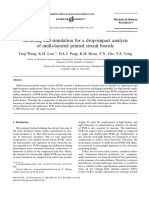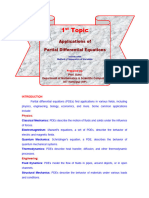0% found this document useful (0 votes)
12 views10 pagesRecursion CPP
Recursion is a programming technique where a function calls itself to solve complex problems by breaking them down into simpler ones. There are two main types of recursion: direct (which includes tail and head recursion) and indirect recursion. Examples of recursion include calculating the sum of a range of numbers, finding the factorial of a number, and reversing a string.
Uploaded by
2207340130040Copyright
© © All Rights Reserved
We take content rights seriously. If you suspect this is your content, claim it here.
Available Formats
Download as PDF, TXT or read online on Scribd
0% found this document useful (0 votes)
12 views10 pagesRecursion CPP
Recursion is a programming technique where a function calls itself to solve complex problems by breaking them down into simpler ones. There are two main types of recursion: direct (which includes tail and head recursion) and indirect recursion. Examples of recursion include calculating the sum of a range of numbers, finding the factorial of a number, and reversing a string.
Uploaded by
2207340130040Copyright
© © All Rights Reserved
We take content rights seriously. If you suspect this is your content, claim it here.
Available Formats
Download as PDF, TXT or read online on Scribd
/ 10























































































